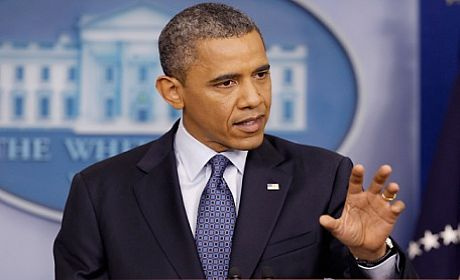Aim: Attaining More American Votes

Iranian Diplomacy: During the past few days, the US Congress adopted further sanctions against Iran. Upon the signature of these legislations by the President, the sanctions will be implementable. What are the main provisions of these sanctions and what are the differences with previous US sanctions?
Amir Hossein Tavakkoli: What the Congress adopted last Wednesday night was a set of complementary sanctions where the fine for doing business with Iran was increased and some ways to bypass the sanctions were limited. For instance, mother companies are questioned and later sanctioned for the transactions being done by their subsidiaries. Further limitations for transactions of oil and oil products have been considered. In fact, the new legislation is in line with and complementary to the previous legislation so that sanctions are implemented more seriously. In this set of sanctions, sections related to insurance and financial, as well as maritime, issues are emphasized more than before and further limitations are applied against these sections. The President's signature gives the executive branch the possibility to use the implementation or lack of implementation of the legislation as leverage in the next round of negotiations to extract suitable concessions. What should not be forgotten in this regard is that it is an election year in America and the two major parties there look to gain the support of different voters.
ID: Iran uses barter trades and other means to bypass sanctions. How successful has Iran been in this regard? Is the adoption of new sanctions aimed at preventing Iran from bypassing sanctions?
AT: The Islamic Republic has various means of conducting its trade, one of which is barter trade. The fact that the Islamic Republic of Iran has been able to continue its path after the enforcement of sanctions means that it has been successful in bypassing sanctions. The adoption of new complementary sanctions also indicates that the other side has reached the conclusion that the Islamic Republic of Iran has succeeded, in major cases, to conduct its business.
ID: During the past few days, the US has declared that it has adopted new sanctions against two Iraqi and Chinese banks which, based on US claims, have helped Iran in bypassing sanctions. To what extent can the US prevent banks and companies from trading with Iran through these new sanctions? Do these banks and companies basically have transactions with the US which would be damaged by these sanctions?
AT: The sanctions on the Chinese and Iraqi banks have several dimensions. The issue of Iran and sanctions and the nuclear issue is only one dimension of this matter. The Chinese have taken certain positions with regard to Syria and voted in the Security Council in a manner that it seems the US intends to familiarize them with these limitations. Relations between the US and China are very deep and, at the same time, very complicated for the US to be able to exert serious pressure on China. Iraq has also been added to this group to make it easier for the US. If they had named only one Chinese bank, the issue might have found other dimensions. Placing the Chinese bank next to an Iraqi bank is aimed at softening the political language. Of course, the psychological atmosphere which is created for all countries should not be ignored. Realistically, a major part of politics involves these kinds of psychological propaganda. They hope that with these measures, the trade expenses of the Islamic Republic will increase. Regarding the level of transactions of the two Chinese and Iraqi banks with the US, it must be said that these banks are not among the major banks of these two countries and the impacts of these sanctions are more psychological than practical.
ID: In recent days, some officials of the Islamic Republic of Iran have talked about the West's economic war against Iran. Is this interpretation, in your opinion, a correct analysis with regard to economic sanctions of the West against Iran? Do these kinds of sanctions have any precedence in relation to other countries? Have economic sanctions ever led to change in political behavior?
AT: It is obvious that these kinds of heavy and vast sanctions are unprecedented in the history of international diplomacy. Cooperation between Europe and the US, who enjoy most of the financial resources and infrastructures of trade and finance, in enforcing sanctions has only happened during times of war between countries. Therefore, using the term “economic war“ does not seem to be irrational. The point that these sanctions will automatically succeed in changing the political behavior is an unrealistic expectation, for this is also unprecedented. Sanctions put heavy economic costs on the shoulders of both sides. Considering the volume and expansion of international trade, these expenses will not be tolerable in the long run for either side. However, the other side expects, through imposition of sanctions and their consolidation, to be able to inflict more damage on us and put more pressure on the other side so that, at the time of negotiations, it can direct discussions towards its ends.

